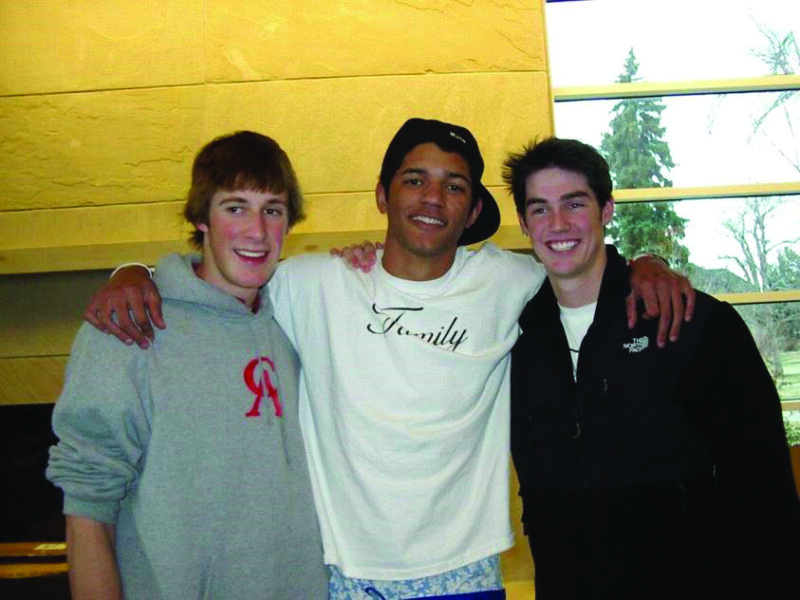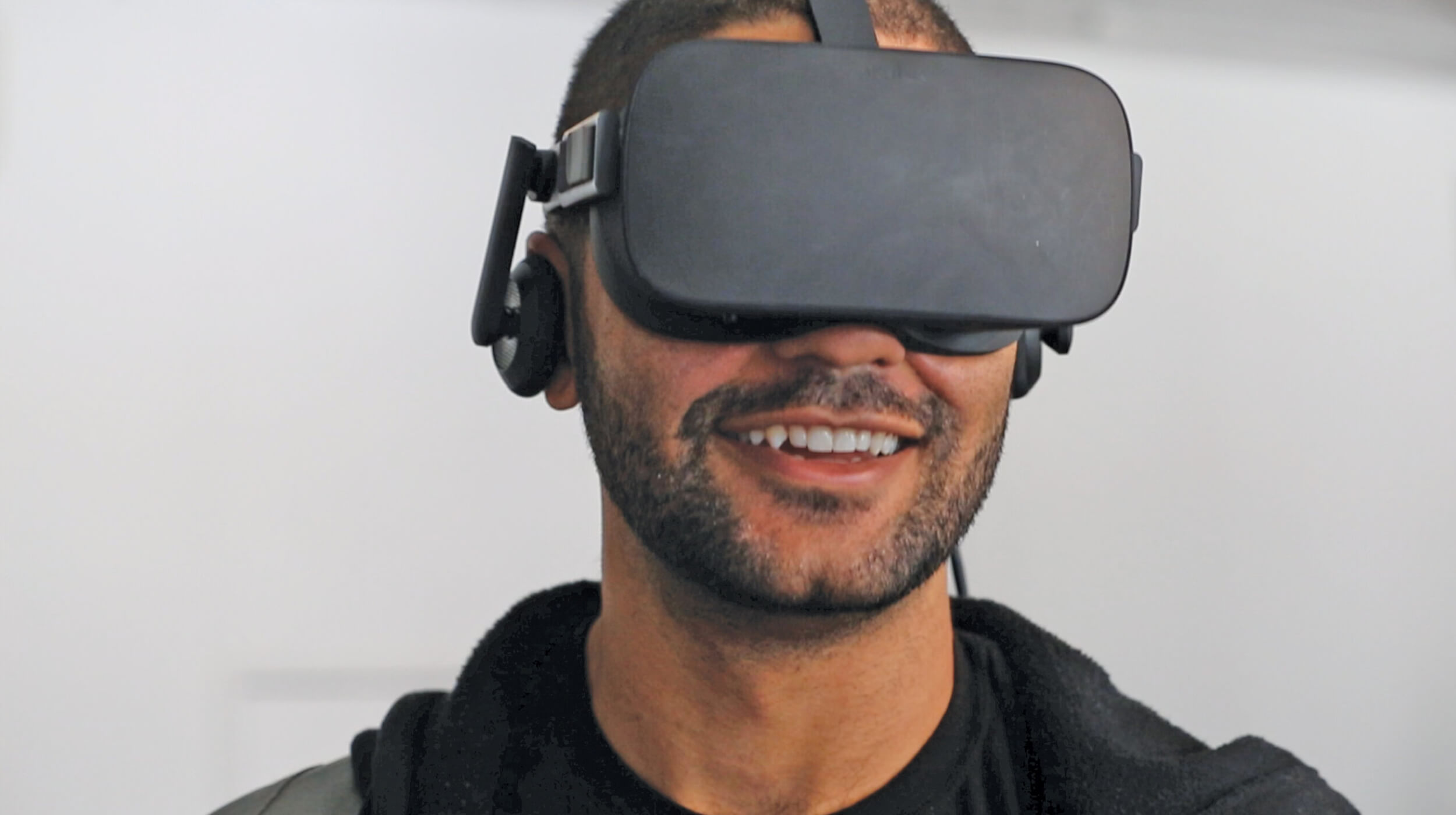When he was growing up, Jake Sally’s parents did not allow him to have any video games.
That—and the fact that he lived two blocks from the library—may be why he turned into a self-admitted “voracious reader,” the kind of booklover who would consume the latest Harry Potter novel in two days.
Thank goodness for grandmothers who break the rules. Sally’s bought him a Nintendo 64 and kept it at her house.
“On holidays, we would go to her place and during the four hours it took for the turkey to cook, I would just melt my eyes on this thing,” he recalls. “But it never occurred to me that I could be a professional gamer and make a living.”
Today, the child who had no video games sits in a room with five gaming devices, shed tears when he first played “The Last of Us” during the pandemic, and serves as the Chief Operating Officer of Jadu, an independent augmented reality (AR) game studio.
Sally has succeeded in joining the critical thinking, problem-solving, and competitive drive that were encouraged at Colorado Academy with the imaginative journeys he enjoys taking to create a career doing what others might consider impossible.
“I like to do the thing that cannot be done,” he says. “It’s the only thing worth doing.”
From Princeton to Hollywood
To get where he is today—a dream job for any serious gamer—has taken Sally from CA (where, he says, “the aperture of my mind expanded exponentially”) to Princeton University (where he booked a then-unknown artist named Wiz Khalifa to headline the campus spring celebration) to Hollywood (where he survived his boss throwing a stapler at him).
Let’s start his story on the day he skipped home to proudly show off the grade he got on his first pre-algebra test at CA—72%. He started CA in the Ninth Grade after attending a school without a formal grading system, so his parents had to explain to him that a C-minus wasn’t very good. It was, he says, “a wake-up call” that he would have to up his academic game to make it at CA. That healthy sense of competition which CA encouraged would serve him well as his career developed.
He found a home in CA’s English Department, where academic demands from the teachers, including Anne Strobridge and Stuart Mills, required that he do more than speed read books for entertainment.
“When we read Dante’s Inferno, it was the first time I read a book to read a book,” he says. “By that, I mean I had to read other books to understand the references in this epic poem and slow down to absorb those references.”

At Princeton, he was named Social Chair for the university, tasked with planning which musical acts would be booked for the school year.
“It was my first taste of Hollywood, and I loved it,” he says. “I saw the business side of entertainment, analyzing our audience, talking with agencies, looking at talent, negotiating contracts, handling the performers.”
On a hunch, he booked a young underground artist, legal name “Cameron Jibril Thomaz.”
When the rapper exploded on the scene as Wiz Khalifa, Sally felt the thrill of discovery that comes when you promote new talent.
He did multiple internships in Hollywood, at Interscope Records and at William Morris Endeavor, the global leader in representing entertainment, sports, and fashion talent. That’s where he had a stapler thrown at him—just another day at the office or, as he describes it, “straight up ‘Entourage.’” (Think hit HBO comedy series). He also interned at a small production company where he read scripts all day and pitched TV show ideas. By the time he graduated from Princeton, he had an idea of how Hollywood works, and he had two goals.
“I wanted to be able to continue to read and write,” he says. “And I wanted to never wear a suit.”
He was hired at William Morris Endeavor as an assistant straight out of college. And yes, he had to wear a suit. But not for long.
Discovering AR and VR
At William Morris Endeavor, Sally found his calling while working for agent Craig Kestel, who was known as the “Sundance King” because of his ability to find undiscovered writers and directors bringing breakout hits to the Sundance Film Festival.
“I have no artistic skill whatsoever, but I really like artists who push the boundaries,” Sally says. “What I can do is act as a shield or amplifier for an artist, finding them the space and funding to get things they need and, most importantly, giving them the opportunity to focus on creating the art.”
In Hollywood, the person who finds talented smart people who believe in themselves but need money or help navigating logistical headaches is called a “producer.” Sally has already earned a reputation as a producer who doesn’t say, “It’s too complicated, we don’t have the budget.” Instead, he proudly claims, “The thing that has never been done before is the only thing I have done before.”
During a stint as a creative executive at Hasbro Studios, the entertainment arm of the toy company, Sally found his true calling. He saw other executives spending their nights and weekends watching TV and movies, reading scripts, looking for the next big hit, and he knew he didn’t share their passion—until he tried on his first VR (virtual reality) headset.
“My entire world changed completely,” he says. “This was going to be my nights and weekends. This was what I had to be doing.”
He quit his job at Hasbro, threw himself into the world of interactive media, asking every engineer he met “a thousand questions,” and ultimately defined his role as “a bridge between the technical and creative.” At RYOT, Verizon’s content innovation arm, he spent five years gathering financing and producing AR and VR projects that had never been done before, developing media formats of the future.
It’s not an easy job, and that’s exactly what he likes about it.
“I’ve been battle-tested,” he says. “I don’t get stressed because whatever comes up will probably not be half as difficult as what I have already done.”
The golden age of video games
At Jadu, he is working on what he believes will be the future of gaming, an AR world free of cumbersome, expensive headsets where gaming reaches more people. Imagine playing a next-generation AR game on your mobile phone, seeing your digital avatar compete with your friends’ digital avatars. It is, Sally says, “the ‘Mortal Kombat’ or ‘Street Fighter’ of the future.” And it is what makes Jake Sally tick.
“The core function of my identity is that I am a gamer,” he says. “I love playing. Today, we are in the golden age of video games with the cost to create and distribute them being democratized for people who couldn’t participate before.”

Don’t for a minute think of Sally as an isolated loner sitting around the clock in a dark room with game consoles. Although he calls himself a “closet introvert,” he likes to socialize with close friends—and most of them date back to his time at CA. On a night in early June, he is headed to watch the Nuggets play in the NBA finals with his CA friends. His first memory of CA is a preseason soccer practice when CA lifer and alumnus Charlie Gallagher ’08 jogged over to him and said, “Hey, I’m Charlie, nice to meet you.”
“There is a real permanence to those CA friends, and that is a testament to CA as an incubator of bonds that are very special and genuine,” Sally says. “At CA people leaned in rather than leaned out. It was just the right school for me.”
